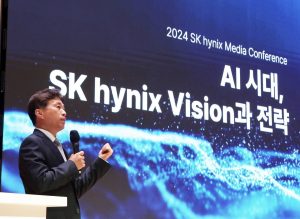Popular Keywords
- About Us
-
Research Report
Research Directory
Semiconductors
LED
Consumer Electronics
Emerging Technologies
- Selected Topics
- Membership
- Price Trends
- Press Center
- News
- Events
- Contact Us
News

A report from ijiwei, citing Chosun Biz, notes that SK hynix, which is expected to record its highest-ever performance, has decided to distribute performance bonuses amounting to 1,500% of employees’ monthly base salaries. The report highlights that this is equivalent to 15 months of annual sal...
News

SK hynix announced today that it recorded best-ever yearly performance with 66.1930 trillion won in revenues, 23.5 trillion won in operating profit with an operating margin of 35%, and 19.8 trillion won in net profit with a net margin of 30%. SK hynix’s yearly revenues marked all-time high, exc...
News

Recently, three leading Chinese semiconductor equipment manufacturers—AMEC (Advanced Micro-Fabrication Equipment Inc.), NAURA Technology Group, and ACM Research—released their latest 2024 financial forecasts and updates on new equipment developments. From revenue and profit changes to R&D...
News

According to a report from TechNews, citing Financial Times, TikTok’s parent company ByteDance is making substantial investments in AI infrastructure, with plans to spend over USD 12 billion on AI chips by 2025. At the same time, ByteDance is under pressure from the U.S. government to sell its ...
Insights

According to TrendForce's latest memory spot price trend report, regarding DRAM, the spot market has shown a marginal demand increase this week, but transaction prices remain relatively low as buyers are testing the water with low-price inquiries. As for NAND flash, announcements on production cuts ...